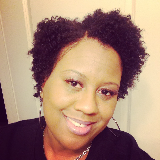Hair loss can be distressing for both men and women, impacting self-esteem and overall well-being. Understanding the causes behind hair loss is essential for implementing effective wellness solutions to manage and potentially reverse this condition.
Common Causes of Hair Loss
Hair loss can arise from various factors, each affecting the hair growth cycle differently:
Genetics and Hereditary Factors
Genetic predisposition is a significant cause of hair loss, known as androgenetic alopecia. This condition affects both men and women and is characterized by a gradual thinning of hair over time. Understanding family history can provide insights into the likelihood of developing hereditary hair loss. For those experiencing this condition, consulting a hair loss clinic in Glasgow can offer specialized treatments and expert advice tailored to individual needs.
Hormonal Imbalances
Fluctuations in hormones, such as during pregnancy, childbirth, menopause, or thyroid disorders, can contribute to hair loss. Hormonal changes affect the hair growth cycle, leading to increased shedding or thinning of hair. Balancing hormone levels through medical intervention or lifestyle adjustments is crucial for managing hormonal-related hair loss.
Nutritional Deficiencies
A diet lacking essential nutrients, such as iron, vitamins (particularly B vitamins), and proteins, can impact hair health. Nutrient deficiencies weaken hair follicles, leading to brittle hair prone to breakage and eventual hair loss. Incorporating a balanced diet rich in fruits, vegetables, lean proteins, and whole grains supports hair growth and overall health.
Stress and Lifestyle Factors
Chronic stress, anxiety, and inadequate sleep disrupt the body’s natural functions, including hair growth. Stress-induced hair loss, known as telogen effluvium, causes a sudden shedding of hair due to stressors like illness, major surgery, or emotional distress. Managing stress through relaxation techniques, regular exercise, and sufficient sleep promotes healthy hair growth.
Scalp Health and Care Practices
The condition of the scalp plays a crucial role in hair health. Poor scalp hygiene, excessive use of styling products, and harsh chemical treatments can damage hair follicles and impede growth. Maintaining a clean scalp, using gentle hair care products, and avoiding heat styling can preserve hair health and minimize hair loss.
Wellness-Based Solutions for Hair Loss
Addressing hair loss involves adopting holistic approaches that promote overall well-being:
Nutritional Supplements and Vitamins
Supplements enriched with vitamins (like biotin and B vitamins), minerals (such as zinc and iron), and essential fatty acids support hair growth from within. Consultation with a healthcare provider ensures proper supplementation tailored to individual needs and nutritional deficiencies.
Scalp Massage and Hair Care Rituals
Regular scalp massage stimulates blood circulation to the hair follicles, promoting nutrient delivery and enhancing hair growth. Incorporating natural oils like coconut oil or argan oil during scalp massages improves scalp health and strengthens hair shafts.
Herbal Remedies and Natural Treatments
Herbal extracts, such as saw palmetto and ginseng, are believed to inhibit the production of hormones that contribute to hair loss. Natural treatments like onion juice or aloe vera gel applied to the scalp may stimulate hair follicles and encourage regrowth.
Medical Interventions and Therapies
For advanced or persistent hair loss, medical interventions like topical minoxidil or oral finasteride may be recommended to slow down hair thinning and promote regrowth. Advanced therapies like platelet-rich plasma (PRP) injections or low-level laser therapy (LLLT) stimulate dormant hair follicles and improve hair density.
Lifestyle Modifications for Hair Health
Adopting a healthy lifestyle that includes regular exercise, adequate hydration, and stress management supports overall hair health. Avoiding smoking and excessive alcohol consumption contributes to improved circulation and nutrient absorption, benefiting hair growth.
Conclusion
Understanding the causes of hair loss empowers individuals to take proactive steps towards maintaining healthy hair. By addressing underlying factors such as genetics, hormonal imbalances, nutritional deficiencies, and lifestyle habits, individuals can implement effective wellness solutions to prevent hair loss and promote hair regrowth. Consulting with healthcare professionals and adopting holistic approaches ensures comprehensive care tailored to individual needs, fostering confidence and well-being through healthy hair maintenance. By embracing a holistic approach to hair care, individuals can achieve optimal hair health and enjoy the benefits of a fuller, stronger mane.








